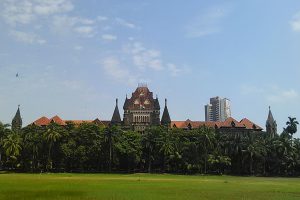Bombay High Court: P.N. Deshmukh and Pushpa V. Ganediwala, JJ. allowed an appeal filed against the order of the Sessions Judge whereby the appellant was convicted under Section 302 IPC for murder of one Pancham (deceased).
As per the prosecution case, the deceased failed to pay the loan he had taken from the brother of the appellant which led to the appellant assaulting the deceased, which resulted in his death. R.M. Patwardhan, Advocate for the appellant contended that the evidence of the eye-witnesses was not at all convincing and were totally contrary to each-other on material aspects. He prayed that the appellant may be acquitted. Per contra, S.A. Ashirgade, Additional Public Prosecutor appearing for the State, submitted that there was direct evidence against the appellant which was duly corroborated. He, thus, prayed for dismissal of the appeal.
The High Court noted that there was an inordinate delay of as many as 4 days in recording the statement of eye-witnesses. The Court referred to State of H.P. V. Gian Chand, (2001) 6 SCC 71 and Dilawar Singh v. State (NCT of Delhi), (2007) 12 SCC 641, to note the effect of the delay in recording statements of witnesses under Section 161 CrPC. It was noted: “If the prosecution fails to satisfactorily explain the delay and there is a possibility of embellishment in the prosecution version on account of such delay, the delay would be fatal to the prosecution. However, if the delay is explained to the satisfaction of the Court, the delay cannot by itself be a ground for disbelieving and discarding the entire prosecution case.”
In the case on hand, the delay in recording the statements was nowhere explained. On facts of the case, it was held that testimonies of the witnesses was in a shadow of doubt and that the evidence failed to prove the case beyond a reasonable doubt. Resultantly, the appeal was allowed and the appellant was acquitted of the offences charged with.[Sachin v. State of Maharashtra, 2019 SCC OnLine Bom 1080, decided on 21-06-2019]

